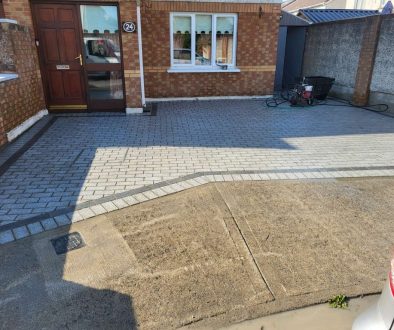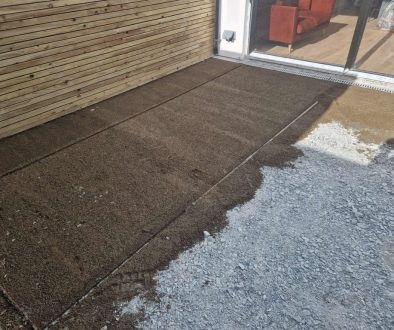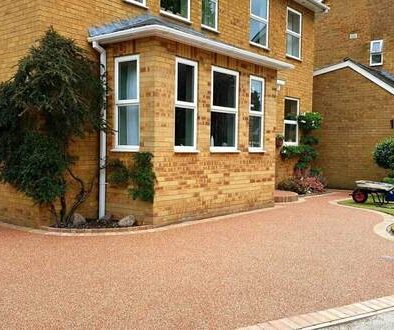Recycled Tarmac Tracks: Old Roads, New Life for Your Smallholding
Creating reliable infrastructure on a smallholding can be challenging—especially when balancing durability, cost, and environmental impact. Recycled tarmac offers a practical solution that reuses materials from old roads, transforming them into solid, functional tracks and driveways. For landowners in rural areas like County Dublin, this approach combines value for money with long-term performance, making it an increasingly popular choice.
What Are Recycled Tarmac Tracks?
Recycled tarmac is created by repurposing old road surfacing materials—typically consisting of bitumen and aggregates—into a new usable surface. This material is crushed, processed, and sometimes mixed with fresh binder before being laid again. The result is a surface that closely resembles traditional tarmac but comes at a lower cost and with a significantly reduced environmental footprint.
Using recycled tarmac doesn’t mean compromising on quality. When properly sourced and installed, it delivers a firm, even finish suitable for everything from vehicle access to livestock movement. The process helps extend the life cycle of existing materials, which would otherwise be discarded or left to degrade.
Why Recycled Tarmac Is Ideal for Smallholdings
Smallholdings demand tough, weather-resistant surfaces that can handle regular use, heavy equipment, and changing seasons. Recycled tarmac checks all these boxes. It’s particularly suited to agricultural environments where robust infrastructure supports the day-to-day running of the land.
Its strength makes it ideal for supporting tractors, trailers, and other machinery without quickly degrading. It also offers a stable footing for foot traffic and animals, reducing the risk of slips or vehicle ruts, especially during wet periods. Because recycled tarmac retains many of the qualities of its original form, it performs well in challenging outdoor settings.
Additionally, smallholding owners benefit from minimal upkeep. Unlike gravel, which can scatter, or dirt paths that become muddy, recycled tarmac remains intact for years with only occasional maintenance required.
Cost-Effective Infrastructure for Rural Properties
Budget-conscious landowners appreciate the affordability of recycled tarmac. Since the material itself has already been used once, its production costs are lower. This translates into reduced pricing for the customer—often significantly cheaper than laying new tarmac or concrete.
There are also savings in labour and preparation. Because recycled tarmac can be laid over certain existing surfaces, it often requires less excavation or ground preparation. This further cuts down installation costs.
Over time, the reduced need for repairs or resurfacing also makes it a financially smart decision. When weighing total cost of ownership, recycled tarmac offers excellent value across the lifespan of the surface.
Quick Installation with Minimal Disruption
For working smallholdings, downtime is never ideal. Recycled tarmac tracks offer a quick and efficient installation process, which means less disruption to your daily operations.
The process typically involves grading the existing surface, laying the recycled material, and compacting it for a smooth finish. Since the material is pre-processed, it’s ready to apply without the need for on-site mixing or curing.
This efficiency is particularly useful for access tracks or paths used frequently for deliveries or livestock movement. You can get your infrastructure in place quickly and continue using your land without lengthy delays.
Environmental Benefits for Eco-Conscious Landowners
Recycling is no longer just a household concern—it’s become a core consideration in construction and land management. By choosing recycled tarmac, smallholding owners actively reduce their environmental footprint.
Every tonne of tarmac that is reused means less material is sent to landfill and fewer raw resources are extracted for new surfacing. This reduces the strain on quarries and helps cut emissions associated with mining, transportation, and manufacturing.
Moreover, by supporting the circular economy in construction, landowners contribute to a broader culture of sustainability. This can be an important factor for those running organic or eco-friendly operations where environmental responsibility is key.

Practical Applications Around a Smallholding
The versatility of recycled tarmac makes it suitable for a wide range of rural applications. Whether upgrading old paths or building new infrastructure, it serves well in many settings:
- Access tracks and driveways: Strong and smooth for vehicles of all sizes.
- Farmyard paths: Withstand heavy use and offer all-weather reliability.
- Parking areas and loading zones: Create defined, clean surfaces for equipment and deliveries.
- Livestock routes: Safe underfoot and easy to keep clean.
- Resurfacing tired gravel or mud paths: Improve usability and reduce maintenance.
The consistency and grip of recycled tarmac also help prevent soil erosion and puddling, especially in sloped or high-traffic areas.
What to Consider Before Installing Recycled Tarmac
Though recycled tarmac offers many benefits, thoughtful planning ensures the best results. First, assess your site conditions. Drainage is crucial—water must be directed away from the surface to prevent pooling or frost damage. In some cases, basic grading or the addition of soakaways may be needed.
Budgeting should include not only the material and installation but also any required groundworks, permits, or long-term upkeep. Whilst maintenance is minimal, periodic resealing or patching may be beneficial over the years.
Finally, decide whether to install the surface yourself or engage professionals. While DIY might be tempting, expert installation ensures the right compaction, finish, and longevity—especially for surfaces that will see heavy or frequent use.
Breathe New Life into Your Property with Trusted Providers
Recycled tarmac tracks offer smallholding owners a practical way to revitalise their property using affordable, eco-friendly materials. Whether you’re building access roads, stabilising farm tracks, or upgrading tired surfaces, this solution delivers real-world benefits with long-lasting results.
For trusted installation by experienced professionals in County Dublin, Rock Road Paving & Landscaping offers reliable service tailored to rural property needs. Contact us today to discuss your recycled tarmac track project and explore how we can help you build durable, future-ready infrastructure.






